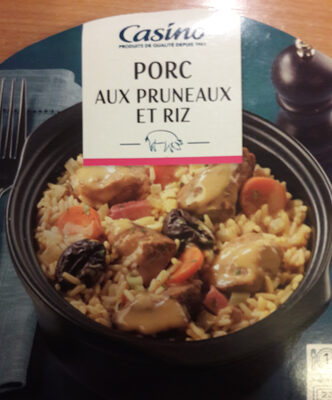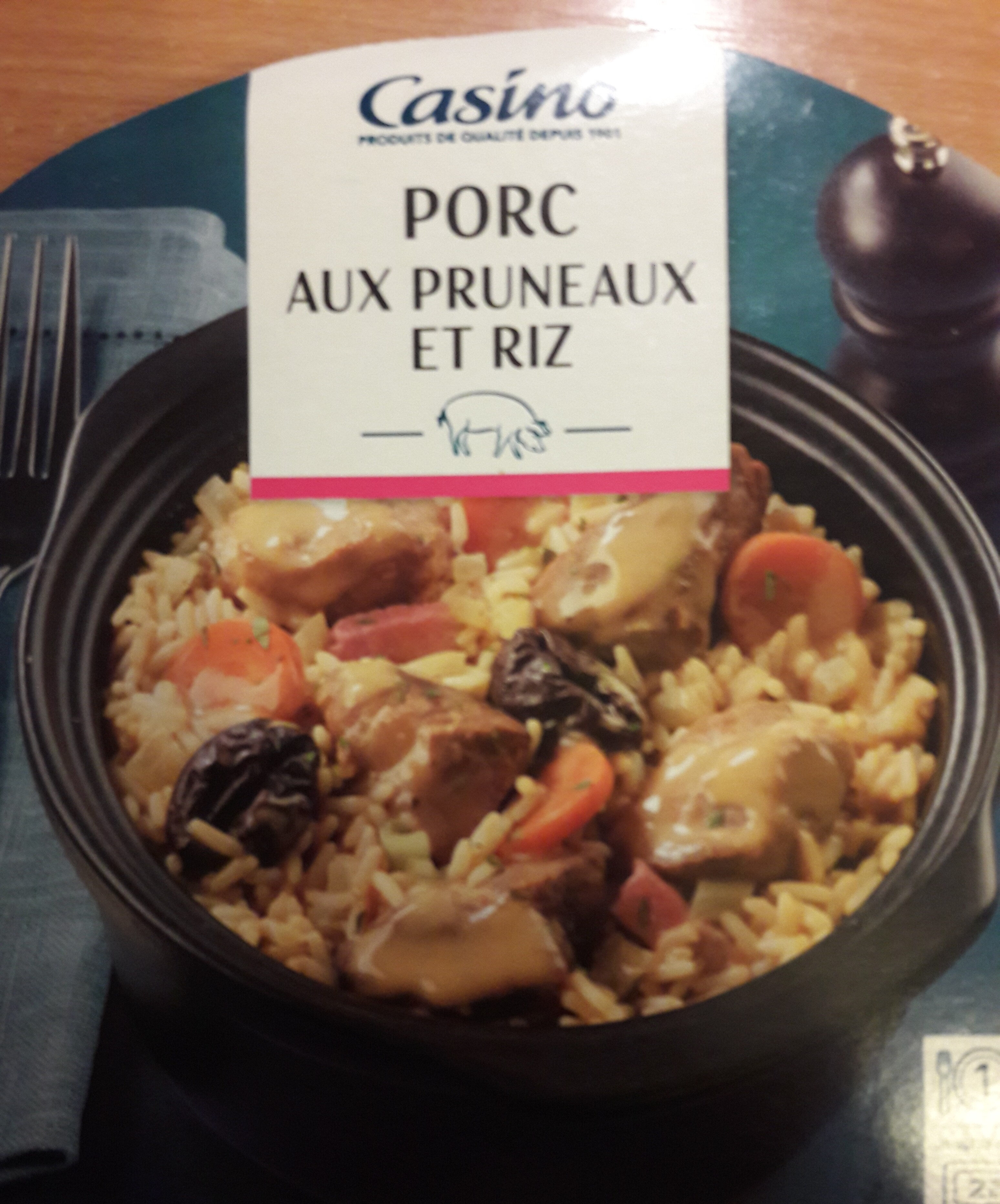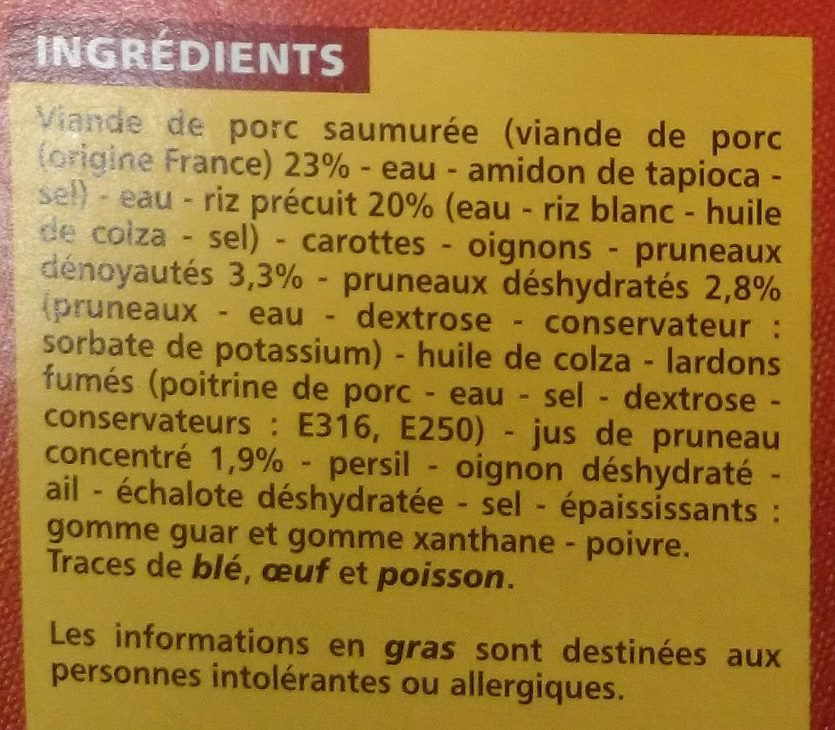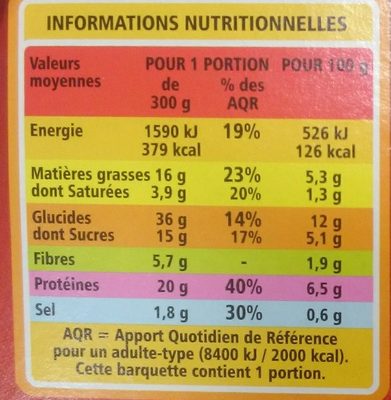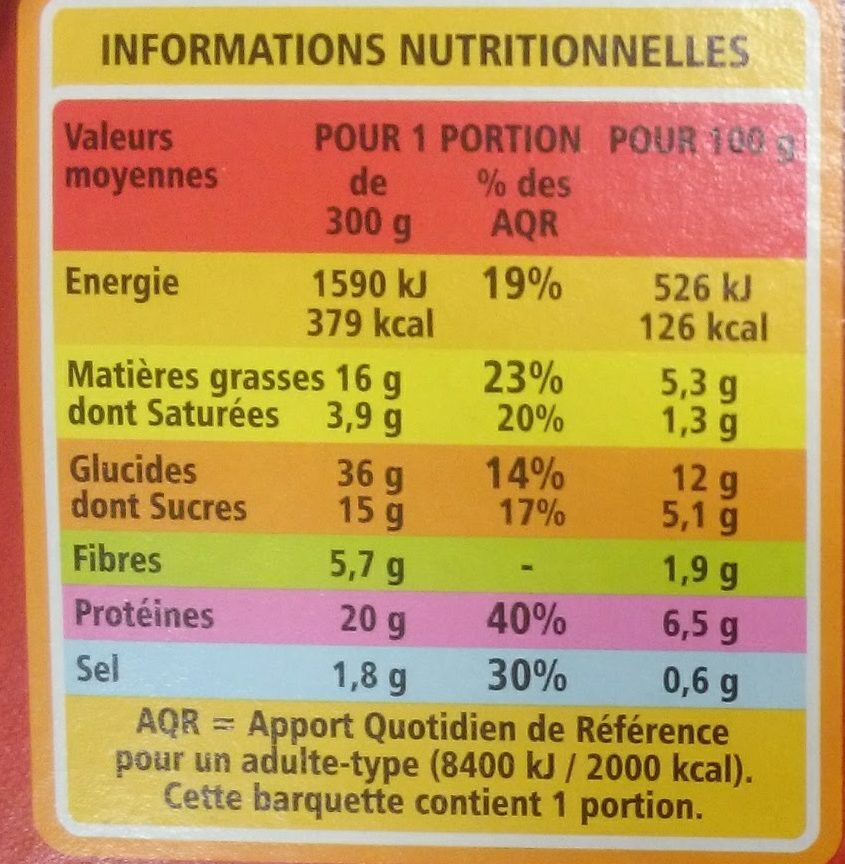Porc aux pruneaux et riz - Casino - 300 g
This product page is not complete. You can help to complete it by editing it and adding more data from the photos we have, or by taking more photos using the app for Android or iPhone/iPad. Thank you!
×
Some of the data for this product has been provided directly by the manufacturer casino.
Barcode: 3222475868924 (EAN / EAN-13)
Common name: Viande de porc aux pruneaux et au riz
Quantity: 300 g
Packaging: Plastic, Cardboard, Film, Protective gas, Sleeve, Tray
Brands: Casino
Brand owner: Casino
Categories: Meats and their products, Meals, Meals with meat, Rice dishes, Pork meals, Microwave meals, fr:Plats & repas préparés
Labels, certifications, awards:
2016 Nutrition labelling experiment, Green Dot, Nutriscore experiment, Nutriscore experiment Grade A, Triman

Origin of the product and/or its ingredients: France
Origin of ingredients: France
Manufacturing or processing places: France
Traceability code: FR 85.222.003 CE - Saint-Gilles-Croix-de-Vie (Vendée, France), EMB 85222B - Saint-Gilles-Croix-de-Vie (Vendée, France)
Stores: Casino
Countries where sold: France
Matching with your preferences
Environment
Packaging
Transportation
Other information
Other information: Conditionné sous atmosphère protectrice.
Preparation: Au four à micro-ondes : percez l'opercule de la barquette avec un couteau ou une fourchette. Centrez la barquette dans le four afin que l'opercule ne soit pas en contact avec les parois. faites réchauffer 2 minutes au four à micro-ondes (puissance maximale). Au bain-marie : plongez la barquette fermée dans l'eau frémissante pendant 10 minutes.
Conservation conditions: Avant ouverture, à conserver à température ambiante. Après ouverture, à conserver au réfrigérateur et à consommer dans les 24 heures.
Recycling instructions - To recycle: étui carton
Recycling instructions - To discard: barquette et opercule plastique
Report a problem
Data sources
Product added on by teolemon
Last edit of product page on by org-casino.
Product page also edited by beniben, casino, casino-off, moon-rabbit, openfoodfacts-contributors, packbot, segundo.
